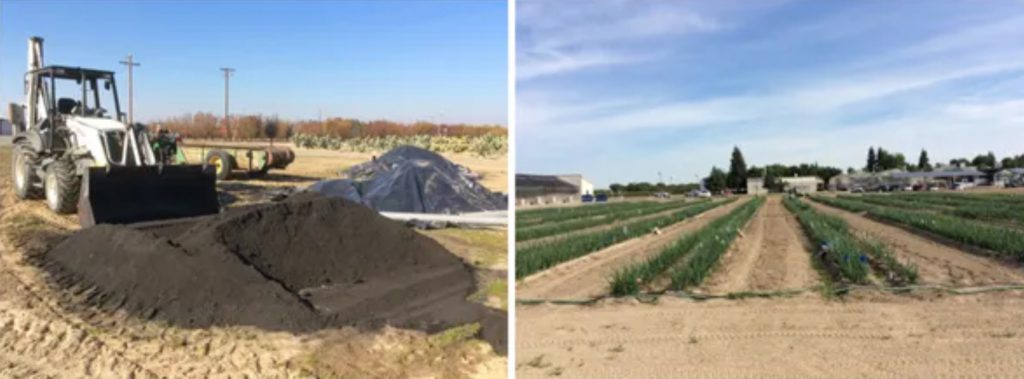
The California Department of Food and Agriculture (CDFA) Fertilizer Research and Education Program (FREP) released a bog post: Research Update: Biochar as a soil amendment.
The post, which is part of a “Research Update” series that highlights projects funded by the FREP competitive grant program, examines a completed project by Suduan Gao and Dong Wang (U.S. Department of Agriculture, Agricultural Research Services, San Joaquin Valley Agricultural Sciences Center) titled “Soil biochar amendment to improve nitrogen and water management.”
Overview: This CDFA-funded project highlights the effects of biochar on adsorption capacity for ammonium and nitrate, nitrogen (N) transformation rates, and soil water retention. This project also investigated the effects of various biochar application rates and irrigation rates on crop response and N fate under field conditions in California’s Central Valley.
Approach: Principal investigators (PIs) conducted both laboratory and field studies to characterize biochar products made from seven feed stocks, determine adsorption capacity for major mineral N species onto biochar, and evaluate effects of biochar on N transformations in the soil. Biochar products with high adoption potential were selected and tested in two field experiments (onion and processing tomato) with varying levels of irrigation, amendments (biochar and manure), and application rates.
Conclusions: Based on both lab and field studies, soil amendments with biochar did not show any direct link to improving yield, increasing N uptake or use efficiency, or reducing environmental losses such as ammonia volatilization or nitrate leaching. However, the PIs recommend that biochar can be promoted as a conservation practice to replace agricultural burning to sequester carbon and sustain soil productivity. They also mention that current commercial biochar products may be too expensive for growers to buy; however, several in-situ, low-cost methods could be explored.
Click here to read the full FREP blog post about this CDFA-funded research project.
FREP is a CDFA program that funds and facilitates research to advance the environmentally safe and agronomically sound use and handling of fertilizing materials. It is part of the Feed, Fertilizer and Livestock Drugs Regulatory Services branch of CDFA’s Division of Inspection Services.


